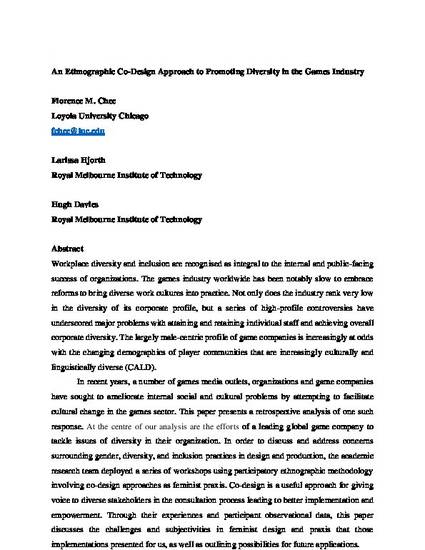
Workplace diversity and inclusion are recognised as integral to the internal and public-facing success of organizations. The games industry worldwide has been notably slow to embrace reforms to bring diverse work cultures into practice. Not only does the industry rank very low in the diversity of its corporate profile but a series of high-profile controversies have underscored major problems with attaining and retaining individual staff and achieving overall corporate diversity. In recent years, a number of games media outlets, organizations and game companies have sought to ameliorate internal social and cultural problems by attempting to facilitate cultural change in the games sector. This paper presents a retrospective analysis of one such response. At the centre of our analysis are the efforts of a leading global game company to tackle issues of diversity in their organization. To assist them, we as an academic research team, deployed a series of workshops using participatory ethnographic methodology involving co-design approaches as feminist praxis. Through their experiences and participant observational data, this paper discusses the challenges and subjectivities in feminist design and praxis that those implementations presented for us, as well as outlining possibilities for future applications.
© Informa UK Limited, 2021

Author Posting. © Informa UK Limited, 2021. This is the author's version of the work. It is posted here by permission of Routledge for personal use, not for redistribution. The definitive version was published in Feminist Media Studies (2021). https://doi.org/10.1080/14680777.2021.1905680